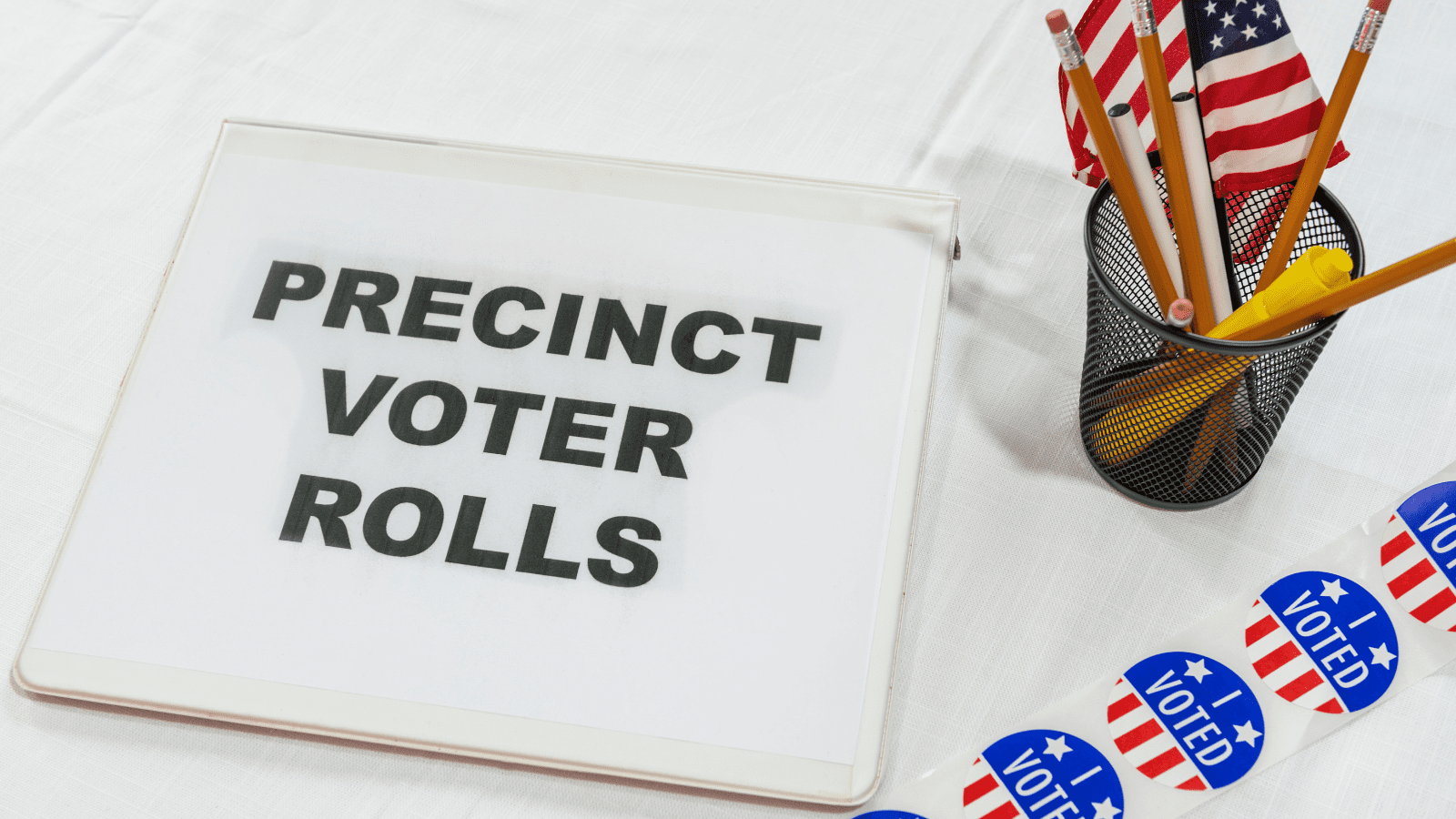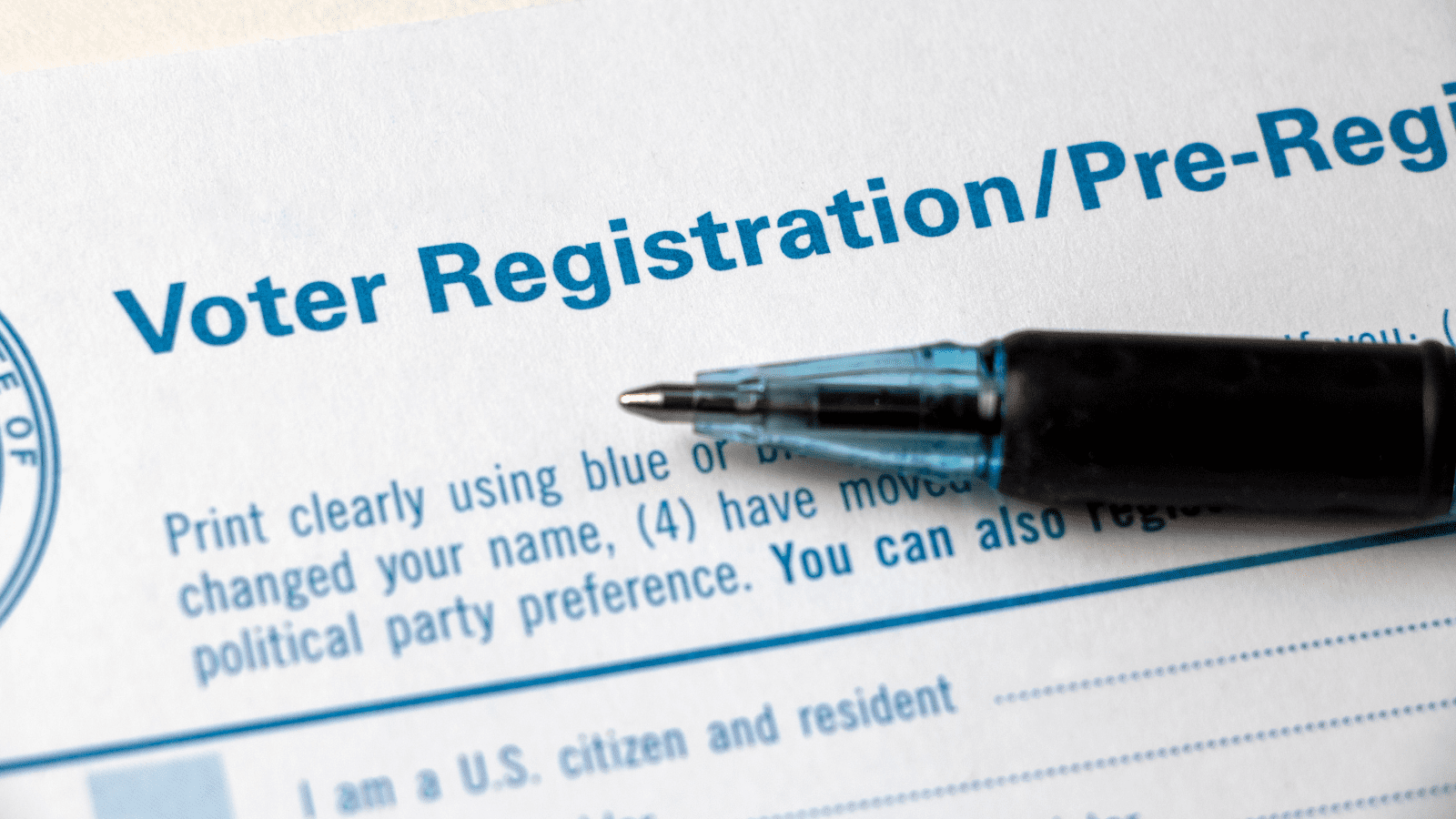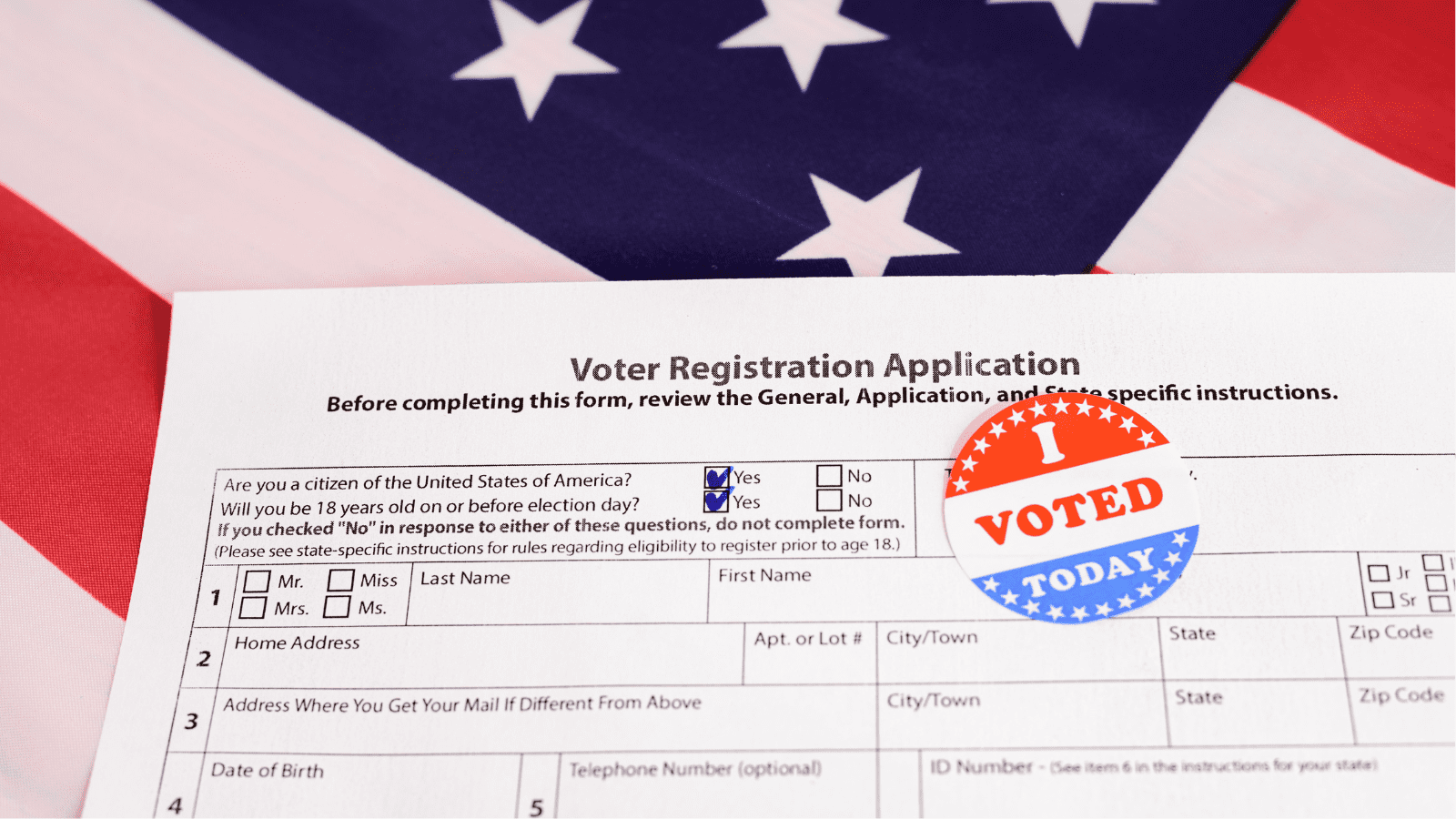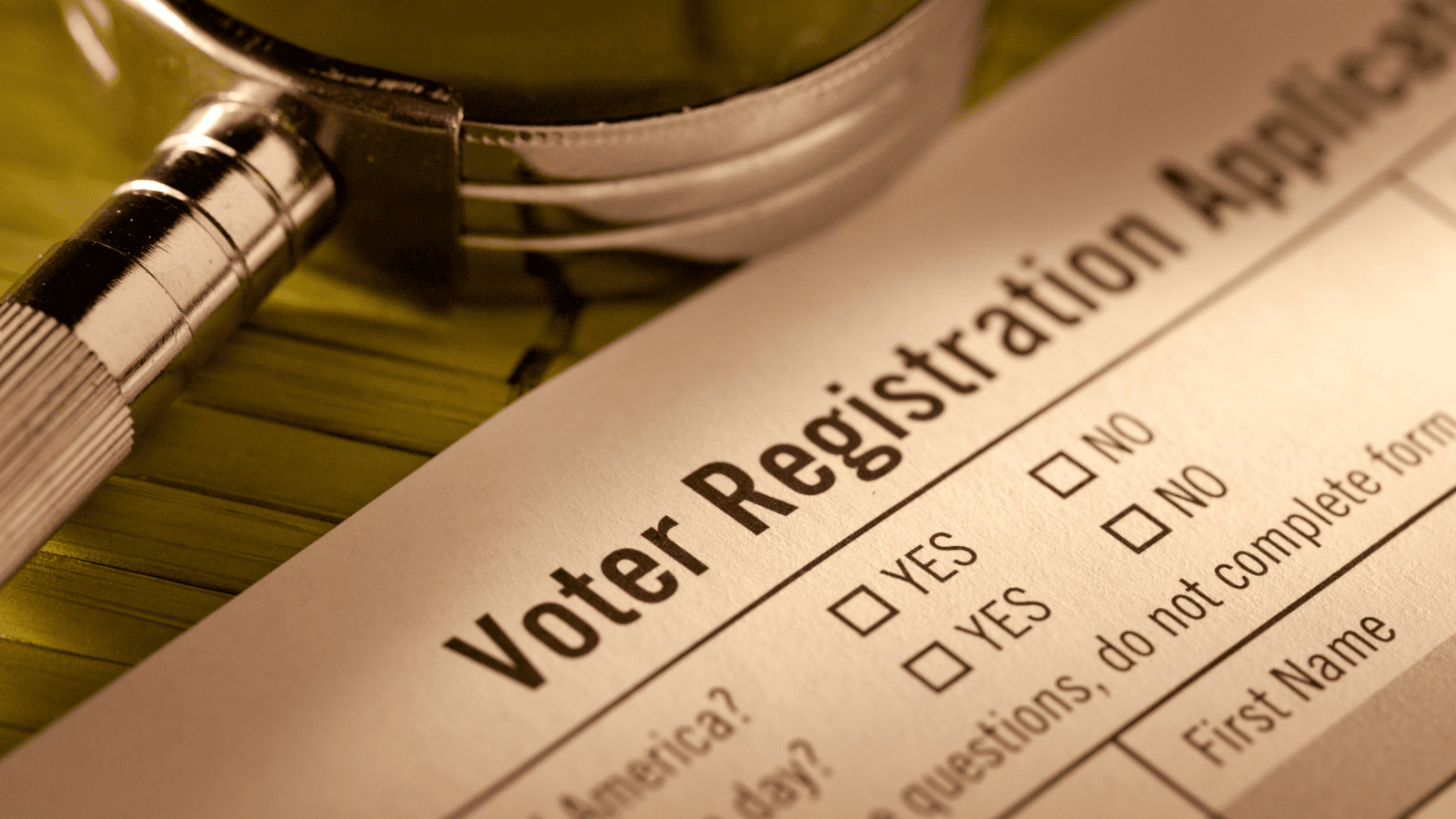ERIC Needs Transparency
Most people have never heard of the Electronic Registration Information Center (ERIC). ERIC is a non-profit organization that examines voter rolls.
Here’s how it works. States pay to join ERIC and send the organization their voter rolls and driver’s license data. Then, ERIC aggregates all the data from the member states to find individuals registered in multiple states and deceased registrants. ERIC, then, sends the information back to the client state to conduct voter list maintenance.
Why is ERIC Important?
ERIC is a program in which member states share their statewide voter registration lists to find individuals who are registered and potentially voting in multiple states. This is beyond crucial for effective voter list maintenance.
States cannot obtain the names of individuals registered to vote in other states on their own. To do this type of list maintenance, they need to be involved in a program that aggregates other states’ voter rolls.
ERIC is not perfect, but right now it is a viable option for states to find the names of people registered in other states.
Why are States Leaving ERIC?
Recently, Alabama, Florida, Iowa, Louisiana, Missouri, Ohio, West Virginia, Virginia, and Texas have left ERIC. The officials have cited concerns of partisanship and refusal by the ERIC board to pass meaningful reforms that would increase transparency.
Additionally, state officials have complained about an ERIC requirement that states send voter registration information to all eligible but unregistered adults. An expensive and often redundant effort since these individuals were likely offered voter registration at the DMV and other places.
Transparency Would Increase States Trust in ERIC
ERIC has put up a wall of secrecy in the voter list maintenance process. As part of the membership agreement, states are not allowed to share ERIC reports with the public. This violates the National Voter Registration Act (NVRA) that gives the public a right to inspect voter rolls and voter list maintenance documents.
PILF has four ongoing lawsuits in Louisiana, Colorado, District of Columbia, and Alaska to obtain ERIC reports and to affirm the public’s federal right to inspect information used to decide who is eligible to vote.
When elections are conducted in darkness, people lose trust in the process. If ERIC were transparent, states would have more faith in the organization.
For instance, the bylaws should be amended to require annual public disclosure of all individuals and organizations outside of ERIC that are provided with any of the data received from member states. Additionally, ERIC should provide a complete listing of all databases used in preparing its analysis.
Other key reforms ERIC must implement are:
- Remove Restrictions on State’s Use of ERIC Data: The membership agreement restriction on using ERIC data only for the “administration of elections” should be permanently and clearly removed. Information provided by ERIC that shows, for example, that an individual is deceased or registered to vote in a new state should be used to inform prior registrations.
- Make Voter Registration Efforts Voluntary: ERIC’s membership agreement forces states to send out notices every 425 days to at least 95 percent of the individuals in a state who are potentially eligible to vote, but who have not registered “inform[ing] them how to register to vote.”
- Increase Efforts to Expose Fraud and Unlawful Voting: Under the current membership agreement, ERIC will only provide states “with data identifying voters who appear to have cast improper votes in a preceding election” only upon written request. This data should automatically be included with the other data ERIC provides to member states.
- Ensuring Nonpartisanship in ERIC’s Operations: The bylaws should be amended to require that all ERIC’s Executive Committee and other standing committees be bipartisan, with an equal number of members of the two major political parties, to ensure that the interests of both parties are represented in the conduct of ERIC’s operations.
- Obtain Missing Voter Registration and Voter History Information: ERIC currently does not receive information on registered voters who may have moved to non-member states. Therefore, ERIC is unable to provide member states with all the information they need to clean up their voter rolls and prevent and detect fraud. This issue can be remedied by requiring ERIC to purchase this data from non-member states.
Reports
The Need to Rehabilitate the ERIC Programor Form an Alternative
ERIC must implement major changes to provide more accurate information to member states, attract the participation of additional states, and prevent partisanship.
31,000 Foreign Nationals Sent Voter Registration Info.
Colorado election officials admitted to mailing 31,000 foreign nationals information about how to register to vote. We reviewed communication records that provide lessons for states belonging to ERIC.
VIRGINIA BLOCKED aliens, DECEASED, & FELONS FROM ERIC’S VOTER OUTREACH
Records disclosed to PILF demonstrated efforts by Virginia election officials to stop foreign nationals, felons, deceased, and others from receiving taxpayer-funded voter education materials.
PILF is knocking down ERIC’s Wall of Secrecy
PILF’s team of some of the top election lawyers across the county are fighting in federal court to force ERIC to become transparent. We are challenging the organization’s secrecy clause that prohibits states from sharing voter list maintenance documents with the public. We have already obtained landmark victories in Alaska and Washington D.C. Other ERIC member states should take notice that the public has a right to inspect ERIC records.
We still have two ongoing lawsuits in Louisiana and Colorado.
PILF V. ARDOIN
Lawsuit filed under Section 8 of the National Voter Registration Act to compel the release of voter roll list maintenance documents from ERIC held by the Louisiana Secretary of State.
PILF V. GRISWOLD
Lawsuit filed under Section 8 of the National Voter Registration Act to compel the release of voter roll list maintenance documents from ERIC held by the Colorado Secretary of State.
Additionally, ERIC fought PILF’s subpoena to answer questions in the organization’s lawsuit against Michigan Secretary of State, Jocelyn Benson, for failing to remove more than 25,000 deceased registrants from the voter roll. Some of these registrants passed away more than two decades ago. Pictured to the right is one of the gravestones of one of the deceased registrants PILF identified.
Media Highlights
Articles and Editorials

D.C. Must Fork Over Data About ‘Deceased’ People On Voter Rolls
The U.S. District Court for the District of Columbia oversaw a settlement that determined that the D.C. Board of Elections must forfeit data reports that ERIC generates about potentially deceased individuals on D.C.’s voter registration lists to the Public Interest Legal Foundation.

Judge Pierces Electronic Registration Information Center’s ‘Wall of Secrecy’
It was Alaska’s contractual obligations with ERIC that hindered the disclosure and necessitated that a court nullify the contract’s secrecy clause so that the data could be released without subjecting the state to legal liability.

J. Christian Adams: This Red-State Election Reform Is A Big Mistake
States shouldn’t leave ERIC until a viable, credible, bipartisan, trustworthy replacement exists.

Red states flee bipartisan voter roll cleanup group, blame its left-wing election agenda
“ERIC is a toolbox that states use to help clean voter rolls,” said J. Christian Adams, president of the Public Interest Legal Foundation. “The more states that leave ERIC the less clean our voter rolls will be, until there’s an effective replacement that has been accepted by other states.”

Federalist: Judge Greenlights Election Integrity Lawsuit Seeking ERIC Voter Data In Alaska After Lt. Gov. Tried To Shut It Down
PILF’s lawsuit will be permitted to move forward as a result of the court’s ruling. “This is the first victory to knock down ERIC’s wall of secrecy,” PILF President J. Christian Adams said in a statement.

J. Christian Adams: Has Vote Fraud Gotten Easier After Ohio Quit ERIC?
If you care about voter fraud, we should care more about fixing ERIC than burning it down.

Conservative Newsline: Federal lawsuit from Conservative Group Against Colorado Secretary of State
“Colorado is hiding voter list maintenance documents the public is legally entitled to,” PILF President Christian Adams said in a statement announcing the lawsuit. “Elections must be free and transparent for Americans to trust their results. Secretary Griswold and ERIC are blocking transparency and violating federal law.”

Group Sues Louisiana for Denying Access to Voter Files
About the lawsuit in Louisiana, PILF President J. Christian Adams said in a statement that “ERIC is hiding documents the public has a legal right to see. ERIC is blocking transparency and violating federal law by hiding these list maintenance documents. The public’s right to these records will be vindicated in court.”






